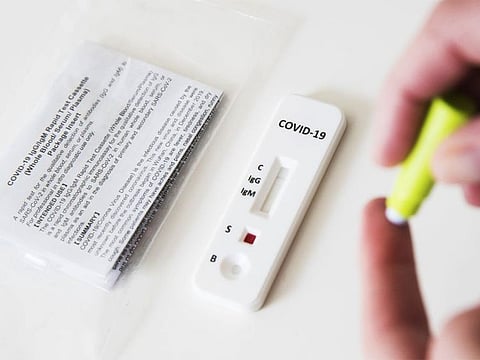COVID-19 tests will get tighter oversight after accuracy issues
"Flexibility never meant we would allow fraud," FDA said in a statement

Blood tests that can tell whether patients have been infected with the new coronavirus will get tighter oversight from US health regulators, after some manufacturers made allegedly false or inappropriate claims and questions arose about the accuracy of some tests.
The Food and Drug Administration said Monday that makers of the tests, which since mid-March have been allowed to be sold without any government sign-off, will have to apply for authorization within 10 days of their products coming to market. The FDA also laid out requirements tests must meet to gain clearance.
While the FDA's original March 16 policy was meant to provide flexibility, "flexibility never meant we would allow fraud," the health agency said in a statement announcing the policy change. "We unfortunately see unscrupulous actors marketing fraudulent test kits and using the pandemic as an opportunity to take advantage of Americans' anxiety."
The FDA has given emergency authorizations to 12 antibody tests and said that 200 are currently in the review process. Most of the tests on the market haven't been checked by the FDA before being sold.
The antibody tests, along with diagnostic tests that can confirm an ongoing infection, are considered an important part of the disease surveillance efforts that public health authorities are counting on to help roll back social distancing measures and fully comprehend the U.S. outbreak.
They're useful because they can identify previous infetions, giving a picture of how many more cases of the virus to expect in the future, as well as how deadly the virus really is. They're also more complex to develop, however, and can be can be prone to false-positives, unwittingly identifying antibodies to other closely related viruses.
Several studies based on the tests have published results, part of attempts to survey local populations and find out how far the virus has spread. A Stanford University study of Santa Clara County, California, concluded that there had been at least two times as many Covid-19 as the county's official counts, though the authors later revised their study to conclude some 2.8% of the county had been exposed to the virus. A study by the New York state found 21% of New York City residents had Covid-19 antibodies.
Acknowledging issues of accuracy, last week the White House suggested the use of two antibody tests at the same time. The use of two tests would allow for the results to be checked against each other.







